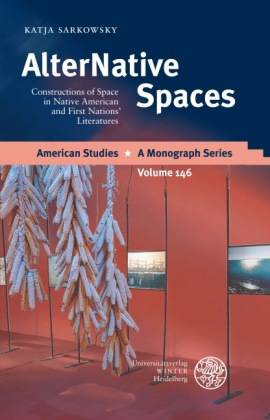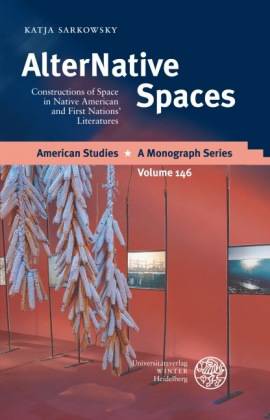
- Afhalen na 1 uur in een winkel met voorraad
- Gratis thuislevering in België vanaf € 30
- Ruim aanbod met 7 miljoen producten
- Afhalen na 1 uur in een winkel met voorraad
- Gratis thuislevering in België vanaf € 30
- Ruim aanbod met 7 miljoen producten
Zoeken
Alternative Spaces
Constructions of Space in Native American and First Nations' Literatures
Katja Sarkowsky
€ 44,45
+ 88 punten
Omschrijving
'Space', so the basic assumption of this study, plays a central role for transcultural processes in contemporary Native American and First Nations' literature. How is 'writing space' constitutive for cultural politics in Native American/First Nations' texts? How does it affect specific aspects of cultural politics, gender politics in particular? And are the spaces constructed in Native literature 'alterNative' in the sense that they offer 'Native alternatives' to hegemonic constructions? Building on interdisciplinary theoretical approaches to the production of space, "AlterNative Spaces" highlights the ways in which the authors under consideration - Leslie Marmon Silko, Tomson Highway, Gerald Vizenor and Thomas King - construct overlapping, ambivalent, and sometimes contradictory literary spaces by drawing on a variety of cultural codes. Contemporary Native literatures are thus read as part of a complex cultural web in which the meanings of culture and 'Native' are constantly negotiated through the construction of spaces. These constructions, this study argues, critically reposition Native writing and individual Native authors both as part of and challenge to U.S. American and Canadian cultures and literatures.
Specificaties
Betrokkenen
- Auteur(s):
- Uitgeverij:
Inhoud
- Aantal bladzijden:
- 288
- Taal:
- Engels
- Reeks:
- Reeksnummer:
- nr. 146
Eigenschappen
- Productcode (EAN):
- 9783825353001
- Verschijningsdatum:
- 5/01/2007
- Uitvoering:
- Hardcover
- Formaat:
- Genaaid
- Afmetingen:
- 135 mm x 211 mm
- Gewicht:
- 425 g

Alleen bij Standaard Boekhandel
+ 88 punten op je klantenkaart van Standaard Boekhandel
Beoordelingen
We publiceren alleen reviews die voldoen aan de voorwaarden voor reviews. Bekijk onze voorwaarden voor reviews.











